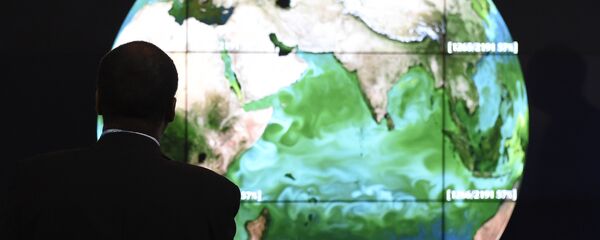The report, released by UK-based think tank Demos, found that a "mood of fear and pessimism is spreading throughout Europe" with citizens increasingly uncertain about their country's and the EU's prospects in 2017.
NEW @Demos report shows a mood of pessimism & fear haunting #Europe & fueling a populist surge: https://t.co/SDQFV4aHgh #europefear pic.twitter.com/1ElE1I67v9
— Demos (@Demos) February 14, 2017
The research, which surveyed adults in six EU countries — France, Germany, Poland, Spain, Sweden and the UK — found low levels of trust in both the EU and national political institutions.
In a sign of the push against Brussels, a majority or substantial minority in each country were in favor of reducing the EU's powers, while there was also "an erosion of support for cultural and ethnic diversity."
The findings somewhat back up the conclusions drawn in the Munich Security Report, released on February 13, which warned the world was heading into a "post-West" era, with populist and anti-establishment movements gaining support for their rejection of traditional liberal values, while the report even noted that an increasing number of Western citizens were supporting authoritarian solutions to their problems.
"Populist parties reject the cultural modernization in Western societies and revolt against what they perceive as threats to the nation, ranging from immigration and cosmopolitan elites to international institutions. They dismiss pluralism and liberalism, essential elements of liberal democracies," the Munich report said.
Future of International Institutions
These fresh pieces of research further back up concerns over the future of international institutions such as the UN, NATO and the EU, and come amid a rise in Euroskeptic movements across the bloc.
Many have highlighted the rise in support of anti-establishment movements in Europe, such as France's Front National and Germany's AfD, while others have pointed to the increased popularity of governments in Poland and Hungary as a sign of the rejection of the political status quo.
To overcome surge towards far-right #populism, governments must address citizens' very real concerns: https://t.co/SDQFV4aHgh #europefear pic.twitter.com/U15FG4pH9d
— Demos (@Demos) February 14, 2017
Despite the criticism of Brussels, the Demos report found there to be "little support in most countries for leaving the EU," while noting that in all countries surveyed except for France, citizens regarded globalization as having a positive impact on their lives.
NEW @Demos & @DelorsInstitute research: many French believe upcoming election will be decided by tactical voting https://t.co/SDQFV4aHgh pic.twitter.com/6oIrocELaM
— Demos (@Demos) February 14, 2017
Sophie Gaston, head of international projects at Demos, said there was much uncertainty over the future of liberal values and international institutions like the EU.
"The picture painted by the research is certainly cause for concern for those who would like to see Europe, and a post-Brexit United Kingdom, remain both internally cohesive and open to the world.
"There is no doubt that we are living through a transition that feels cataclysmic in nature — disruptive, challenging and potentially dangerous. But the question as to whether this is the beginning or the end of something has not yet been decided," Sophie Gaston said.
"It is important that European governments, and the European Union itself, do not succumb to reactive policy-making and short-term thinking to try to 'stem the tide' of populism, nationalism and authoritarianism," she added.





